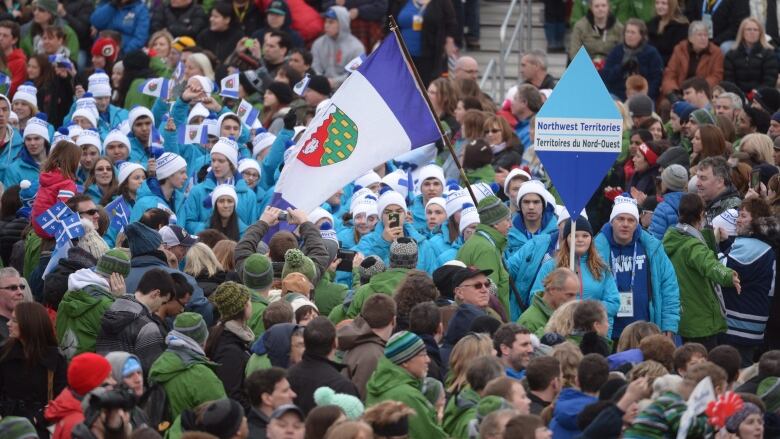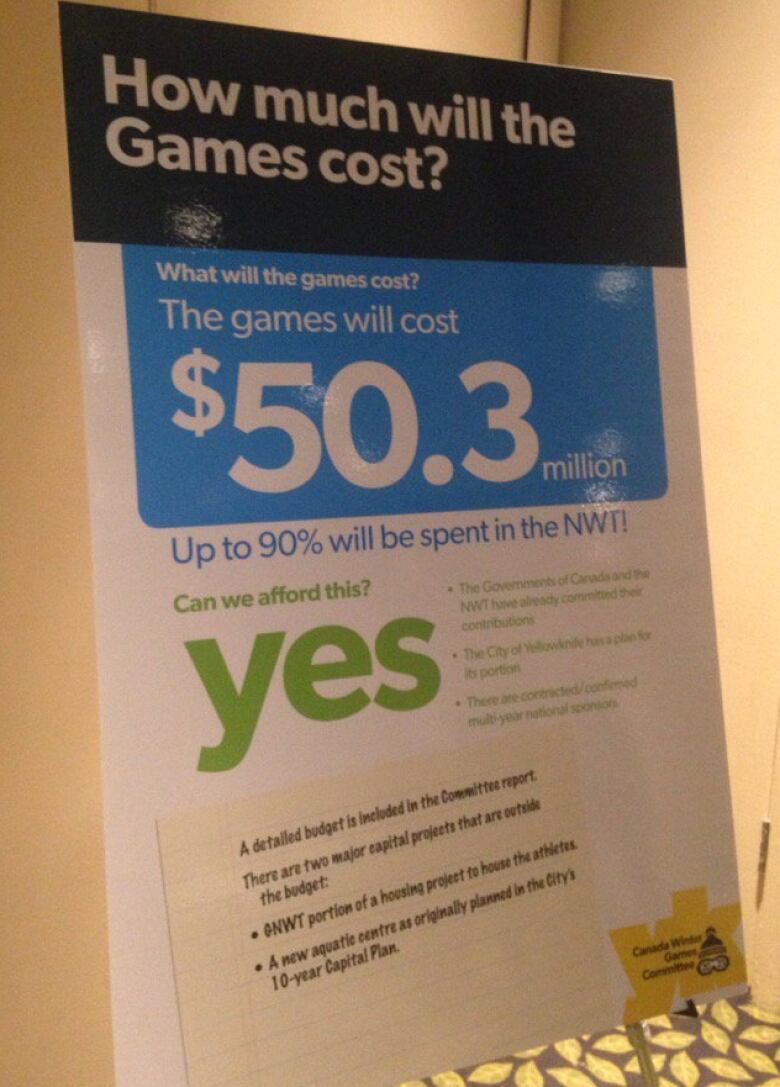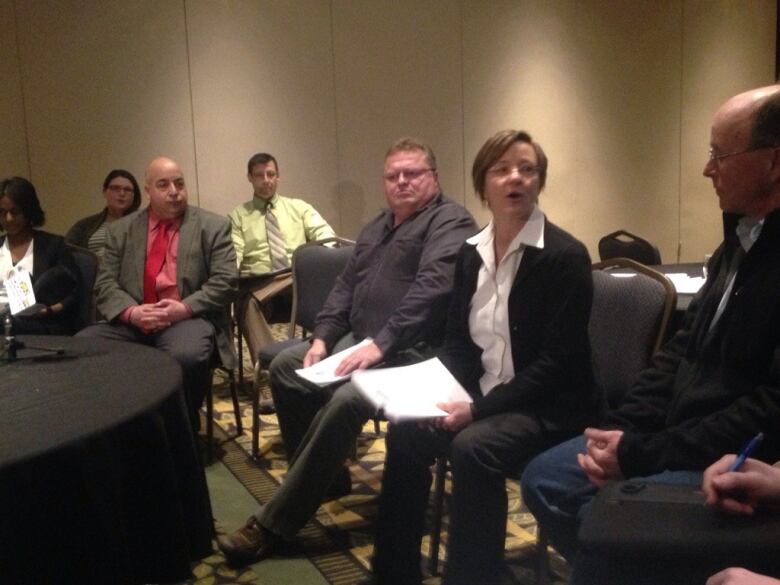Canada Winter Games in Yellowknife would cost $50M, says committee
Numbers of volunteers, hotel rooms cited as potential issues in report

It will cost just over $50 million to bring the 2023 Canada Winter Games to Yellowknife, but that's contingent on a new poolbeing built and $26 million in territorial funding for an athletes village, according to a committee tasked with determining if a bid is feasible for the N.W.T. capital.
- Yellowknife Ski Club to vote on motion to support Canada Winter Games bid
- Canada Winter Games bid gets no support from Yellowknife Chamber of Commerce
- OPINION|$36M for Yellowknife's Canada Games could be better spent elsewhere
The Canada Winter Games Working Committee established by the City of Yellowknife released its findings in a series of task group reports Wednesday afternoon. Those reports examined the potential cost of hosting and preparing the city for a hypothetical 2023 Canada Games, and provided estimates on numbers such as hotel rooms needed and volunteers required for the event.

The possibility of hosting the Canada Winter Games has been divisive in recent months, with the city's Chamber of Commerce opposing a potential biddue to worries over risks and tax increases. Other groups, such asthe Yellowknife Ski Club, have come out in support of the bid.
Budget set at $50.3 million
The committee proposed a$50.3 million budget for the 2023 Games, with $36.3 million set aside for operational expenses and $14 million in capital costs.
That number is a "conservative" estimate, according toLeanneTait, who sits on thecommittee, and is higher than budgets for previous Canada Winter Games.

"It's our hope that our games would be as successful as other Games. That surplus is cash money that can go back into legacy projects in the city."
The largest of those capital costs is $11.3 million towarda facility that would be used as an athletes village for the Games. According to the committee's report, this constitutes 30 per centof the cost of the facility, with the other 70 per cent approximately $26.5 million being provided by the territorial government. After the Games are over, the facility would be turned over to the territorial government andconverted into seniors' or social housing.
The committee's budget also does not include the costof building a new pool in Yellowknife, which would be needed to host the synchronized swimming event.
"The city has an aquatic centre in its 10-year capital plan," said Tait. "It's not something that's being done for the Games;it's always been in the budget."
According to the draft budget, the costs of the Games break down as follows:
- $12,420,000 from the federal government;
- $12,420,000 from the territorial government;
- $15,960,000 from the City of Yellowknife;
- $6,403,788 from sponsorship revenues;
- $1,000,000 from ticket sales;
- $180,950 from merchandise and licensing; and
- $433,400 from "other revenue."
According to the report, the city will lobby the territorial government for a change in legislation to implement a "visitor levy" beginning in 2017, as well as allocating nearly $400,000 each year in itsformula funding from the territorial government and providing value-in-kind contributions.
The proposed budget does not include a property tax increase "for the purpose of hosting the Games," according to the report.
Report highlights risks with number of volunteers, hotel rooms
The number of volunteers and hotel rooms needed for the Games were identified as risks in the committee's reports, with an estimated 4,500 volunteers neededto successfully host the event.
Based on previous Arctic Winter Games, the report suggests that as many as 3,500 volunteers can be sourced from within Yellowknifeif government and school boards "work towards programs that allow staff to participate in the Games," but that still leaves at least1,000 volunteers to be recruited from outside the city and housed during the event.
In addition, the report cited a potential shortage of accommodations, citing aurora tourism and the mining industry as factors that will require hotel rooms at the same time. The report budgets for up to 45 per cent of Yellowknife's hotel rooms to be used for Games purposes, meaning that the city could see a shortfall of up to 288 rooms, which the report cites as a "worst-case scenario."
The committee will be presenting its report and soliciting feedback from local stakeholders and the public during a breakfast Thursday morning at Yellowknife's Explorer Hotel. It will also hold open houses on Thursday from 7-9 p.m. at the Explorer Hotel, and Saturday from 9-11 a.m. at the Yellowknife Multiplex.
Any feedback collected before Feb. 5 will be attached to the report, which will then be provided to Yellowknife City Council. Council will then decide whether or not to proceed with a bid.












_(720p).jpg)


 OFFICIAL HD MUSIC VIDEO.jpg)
.jpg)



























































































